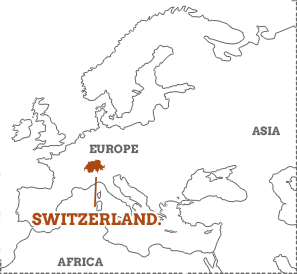The closer you get to the borders with France, Germany and Italy the greater the cultural influence, although Switzerland’s main identity stems just as much from traditional Alpine lifestyles as from its noisy neighbours. Mountains are a major part of Swiss life with Mont Blanc and the Matterhorn both straddling borders to allow travelers to explore over long distance trekking routes interspersed with basic, yet comfy, Alpine huts and convenient cable cars. Swiss lakes offer a far less undulating approach to outdoor activities and often feature marinas adorned with twinkling yachts alongside picnic points and lakeside towns bordered by spacious larch forests – perfect for walking without the gradient.
![]()
Watches, cuckoo clocks, fondue and lederhosen, if you’re searching for Switzerland, without the stereotypes, travel with an open mind but not, perhaps, an open wallet.
![]()
Visiting Switzerland, no matter which season, can be an expensive business although sticking to hearty lunches in rural restaurants rather than evening alternatives in Bern or Zurich will save vacation budgets for much more important things, like a souvenir cuckoo clock or all that lovely chocolate. Find out more in our Switzerland guide.


